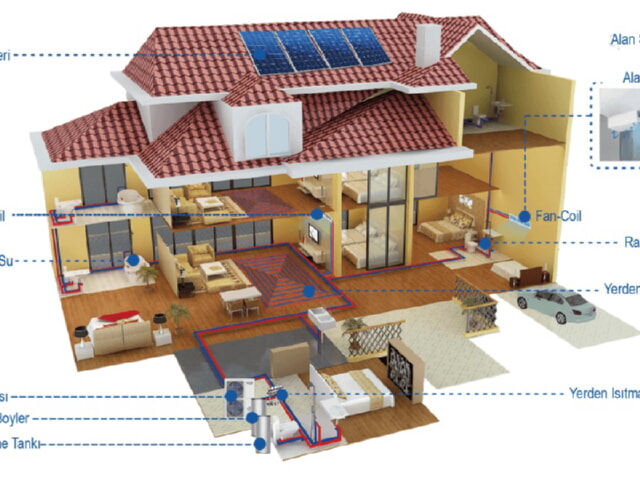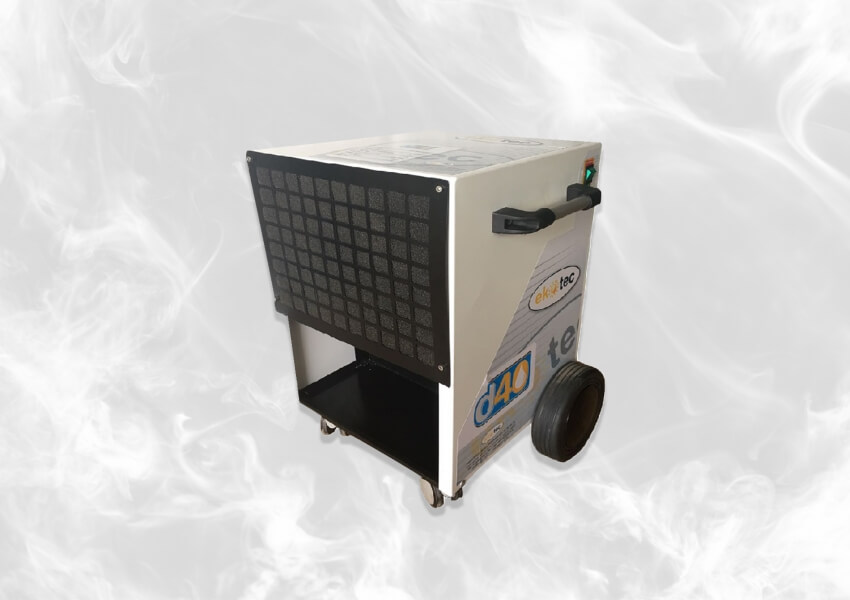Save with a Heat Pump
A heat pump is a good alternative for energy savings.
A heat pump is an energy-efficient alternative to electric heaters and air conditioners in environments with moderate heating and cooling needs. Just like a refrigerator, a heat pump uses electrical energy to transfer heat from a cool space to a warm area, cooling the cool space and heating the warm area.
Heat pumps bring cool outdoor temperatures indoors when heating is needed and transfer heat from your cool home to the warm outdoor air during the cooling season. Heat pumps do not generate heat; they transfer it from one space to another. Since they move heat rather than generate it, heat pumps use less than a quarter of the energy required to operate conventional heating or cooling devices.
There are three types of heat pumps: air-to-air, water-source, and geothermal. They collect heat from the air, water, or ground outside and concentrate it indoors. The most common type of heat pump is the air-source heat pump, which transfers heat between your home and the outside air. The types of heat pumps used today can reduce your electricity use by about 50% compared to resistance-based heating systems like electric heaters.
High-efficiency heat pumps also have better humidity control than standard central air conditioning systems, resulting in lower energy consumption and greater cooling comfort during the summer months. Air-source heat pumps have been used in nearly all areas of northern countries for many years, but until recently, they were not used for extended periods in freezing temperatures. However, in recent years, air-source heat pump technology has improved, making it a viable heating alternative for colder regions.

Air-Source Heat Pump
An air-source heat pump generates warm and cold water instead of air and allows for use with radiant floor heating systems in heating mode. Geothermal (ground-source or water-source) heat pumps allow for higher efficiency by transferring heat between your home and the ground or a nearby water source. Although the installation cost is higher, geothermal heat pumps have low operating costs due to their use of relatively stable ground or water temperatures.
Geothermal (or ground-source) heat pumps have several key advantages. They can reduce energy use by 30-60%, control humidity, are durable and reliable, and can be used in a variety of homes. Whether a geothermal heat pump is suitable for you depends on the size of the underlying layer and the landscape. Ground-source or water-source heat pumps can be used in more extreme climates than air-source heat pumps, and customer satisfaction with the systems is very high.
A new type of heat pump for residential systems is called an absorption heat pump, also known as a gas-powered heat pump. Absorption heat pumps use heat as an energy source and can be operated with a wide variety of heat sources.
Unlike standard compressors, which can only operate at full capacity, two-stage compressors allow heat pumps to operate at the required heating or cooling capacity for the moment. This saves a significant amount of electrical energy and reduces compressor wear. Two-stage heat pumps also work well with zone control systems. Zone control systems, typically found in larger homes, use automatic dampers to keep different rooms at different temperatures.
Some types of heat pumps are equipped with variable-speed or dual-speed motors in indoor fans (blowers), outdoor fans, or both. Variable-speed controls for these fans aim to move air at a comfortable speed, minimizing drafts and maximizing energy savings. They also reduce noise from fans operating at full speed.
Many high-efficiency heat pumps are equipped with Ekotec technology that recovers waste heat from the heat pump's cooling mode and uses it to heat water. A heat pump equipped with Ekotec can heat water 2 to 3 times more efficiently than a standard electric water heater.
Another advancement in heat pump technology is the scroll compressor, which consists of two spiral-shaped scrolls. One remains stationary while the other orbits, compressing refrigerant and forcing it into smaller spaces. Compared to typical piston compressors, scroll compressors have a longer lifespan and operate more quietly. The cost of heat pumps is also not as high as it is often perceived.





